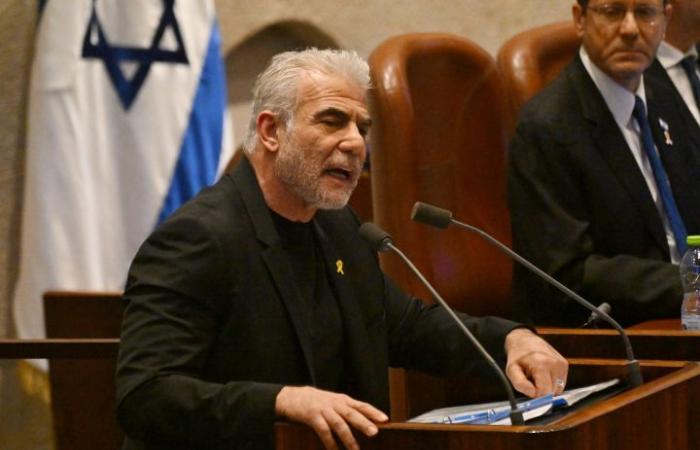Israeli opposition leader Yair Lapid expressed concerns on Wednesday about a series of government proposals that he believes will further restrict press freedom in the country.
“Since the formation of this government” in 2022, “Israel has fallen 15 places in the press freedom rankings” established by Reporters Without Borders, said opposition leader Yaïr Lapid during a meeting of emergency held in the Israeli Parliament.
He estimated that the current government did not want a balanced media landscape, but that it wanted “media like in Hungary, like in Russia (…) frightened, submissive, superficial”.
Mr. Lapid, a former journalist and ex-prime minister, listed several government measures and bills that he called a “planned attack from above.”
Among the measures taken by the government in recent months are a bill that will allow the Minister of Communications to determine the method of measuring audiences for the country's television channels and a law already passed in preliminary reading aimed at privatizing the broadcasting company. The country's public broadcasting and army radio station.
The government recently decided to cut all ties between the state and the left-wing daily Haaretz, saying it would no longer broadcast public messages or advertising campaigns in the newspaper.
Haaretz, very critical of government policy, is one of the country's oldest daily newspapers.
Its editor-in-chief Amos Shoken called for “sanctions” against Israel and denounced the continuation of the war against the Palestinian Islamist movement Hamas in the Gaza Strip, during a conference organized by the newspaper in London on October 30.
In May, the government voted to close the Qatari media outlet Al Jazeera, calling it a mouthpiece for Hamas which attacked southern Israel on October 7, sparking the war in Gaza.
Lapid did not mention restrictions on foreign media in Israel, but warned that “if this current legislation passes without resistance, a wave of even more dangerous laws will follow.”
Communications Minister Shlomo Kahri, present at the meeting, denied that the government was trying to limit press freedom. According to him, the aim is to create diversity by opening the media market to greater competition.
With AFP






